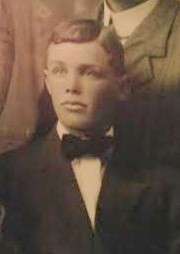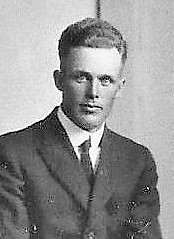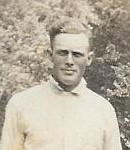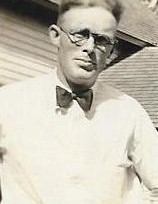Joy Neal Kidney's Blog, page 86
July 6, 2020
Marfa AAF Base Officers’ Club Opens, 1943
Marfa, Texas
The formal opening of the Officers’ Club at the Marfa Army Air Base was July 10, 1943.
[image error]
[image error]
I felt like Cind[e]rella and had fun!
[image error]
[image error]Marfa First Christian Church, where Warren and Doris lived in a little room in the front for $13 per month. Included water, lights, a bed, and two chairs. The bath was at the other end of the church.
A little longer version.
July 3, 2020
Writing and Publishing Journey
After transcribing the Wilson family letters for the four remaining siblings, I wondered why hardly anyone knew about the great sacrifice of the family during WWII.
[image error]Transcribing letters on the old MacPlus (with a MacBottom hard drive and MacChimney to keep the computer), in son Dan’s room, so was around 1990. It sits on the old library table from the Victorian house in Guthrie Center, where Leora’s parents and siblings lived during the 1920s.
I’d never thought of writing anything besides letters and genealogies, but I set out to learn to write “for real,” just to be able to share their story. In the early 1990s I got a subscription to Writer’s Digest, studied how-to books, about writing and about submitting something to a newspaper or magazine.
[image error]A small fraction of helpful books about writing.
“Meteors of August” was my very first published essay, August 2, 1993, in The Des Moines Register. They even paid me $50 for it! Even better, I knew that–after several rejections–I was beginning to catch on to writing that connected with readers.
Since I’d not been interested in history before, I was also doing my own crash course in WWII, especially anything that had directly affected any of the five Wilson brothers. I requested the combat records and casualty files of the brothers who were lost, and I joined combat unit reunion groups to be able to correspond with men who knew one of the brothers or who served in the same unit. And I did a lot of journaling.
A year later, after more rejections, Paul Berge’s “Rejection Slip Theater” featured my story about trying to reconcile the idea of my farmer farmer, who never flew again, with instructing advanced cadets during the war, a first pilot on B-17s, and even commander of a B-29 Superfortress at the end of the war.
The day after “Reconciling Dad” was on “Rejection Slip Theater,” Lee Kline of WHO-Radio interviewed me about it for Father’s Day.
For the next few years, several essays and stories were published in The Register and also local newspapers.
University of Iowa Summer Writing Festival
One of the best things I did toward what eventually became Leora’s Letters was to attend the Summer Writing Festival three times at the University of Iowa. I took several workshops, one year staying two weeks, but grew the most in Drake Hokanson’s “Literary Nonfiction” classes. Using fiction techniques for nonfiction was a new concept for me, but I was brave enough to sign up for the advanced class. Students came from all over the nation and I knew I’d never see them again, so took the leap. I learned more that summer (I also was in other workshops for children’s writing, essays, etc.), and gained more confidence.
[image error]I’d hope for an “Intermediate Literary Nonfiction” class that summer, but got brave enough to take this awesome one.
After getting well-paid for essays in The Iowan, Midwest Living, The Christian Science Monitor, and The Des Moines Register publishing several more, I came down with painful fibromyalgia in 2001. I couldn’t concentrate to write. I couldn’t even read during years of mental fog.
Website
When the brain fog lifted a little, the inner urge to share stories was still there–especially the one to make sure the Wilson story wasn’t forgotten. I started a website about 2015. Yes, I lost some writing years in there, didn’t I? Still a puzzle, but I was so thankful to be able to journal again.
By then, essays were no longer sent through the mail, always accompanied by a SASE (self addressed stamped envelope). I embraced electronic submissions and attended my first Cedar Falls Christian Writers Workshop, where I began to experience a delightful community of writers. I also picked up so much about social media and marketing, and received feedback on parts of what would become Leora’s Letters.
[image error]
Although I’d whittled on the manuscript, I sent copies of the still-bloated book to readers, especially those in book clubs and used to giving honest feedback.
Coauthor Robin Grunder
In late 2018, I join an on-line subscription Facebook group called “Write That Book,” where we could interact with experts who gave talks on all phases of writing. That’s where I “met” my coauthor, Robin Grunder! I still have never met her in person, but certainly hope to one day. She was the one who put the story on a diet, removing rabbit trails fascinating to me but actually detracted from Leora’s story itself. (I wanted to cry, but I knew she was right!)
Last summer the manuscript was finally ready to share with about a dozen beta readers, who were writers I’d “met” through my website, “Write That Book,” as well as some of the dear original readers who’d hung in there with me. Once I had feedback and had tweaked as much as I could, I eventually had to declare it “done.”
Publication!
I hired a woman to upload the manuscript to Amazon, which also included internal design and reworking the elements of the cover. Leora’s Letters: The Story of Love and Loss for an Iowa Family During World War II was published as a paperback book at the end of November 2019, with the ebook version in December.
One of the most fun things about having a book published was getting to give programs (getting to say yes after not being able to do this since 2001 was such a nice surprise), meeting people at book signings, and radio interviews, most of which happened right before Christmas.
And the sacrifice of one central Iowa family, my own Grandma Leora’s family, will never be forgotten.
[image error]
The spring of 2020, I’d had requests for an audiobook version. I’d never even listened to one so asked the “Write That Book” members (now called “Write That Book with Tricia Goyer”) how to go about it. Audible, they said, so I began to research that, but really hoped to find someone local to narrate it.
I’m so blessed that Paul Berge agreed to do it. Here’s the blog post about that journey. The audio version of Leora’s Letters is available only as a download from Audible and iTunes.
A website is a great place to practice writing. My 400th blog post was published on joynealkidney.com this summer.
And I’m working on the manuscript for Leora’s Stories: The Scarcity Years of the Great Depression (working title). If God lets me live long enough, I’ve got plenty of notes (as well as Leora’s own memoir) for a third book, about her growing up years.
Moral to the story: Publishing a book takes 1) a lot of study and practice (a website is a great place for that, and begin to collect followers and feedback), 2) a writing community with lots of cheerleaders and generosity, and 3) lots of perseverance.
July 1, 2020
Kenneth Neal (1895-1970)
It was the spring of 1970. Guy was home from Vietnam (early, because of the death of his father) and was discharged from the U.S. Air Force, having served since 1966.
I’d paid off my National Defense Student Aid loan, had my bottom wisdom teeth pulled, and sewed a green dress, and the Presbyterian Church traded in their pump organ for a Hammond electronic one.
And Gloria I took lilacs to Grandpa Neal in the Dexter hospital. He’d been using oxygen at home, even while he continued to smoke. But that day in the hospital, May 8, I realized that the only grandfather I ever knew wasn’t going to get well.
Kenneth Neal was taken to a Des Moines hospital on May 19, but later was brought back to the Dexter hospital where he died three days short of his 75th birthday.
Kenneth Neal Rites Held Friday
DEXTER: Services were conducted Friday, July 3, at the First United Presbyterian Church by Rev. Chas. T. White for Kenneth Neal. Organ music was provided by Mrs. Maryon Hadley with Mrs. Judy White sing[ing] the Twenty-Third Psalm.
Casket bearers were grandsons, Vincent Wells, Kenneth Sh[ep]herd, Jon Shepherd, Bill Beaman, Ben Beaman, Thomas Isenhart and Noel Ki[d]ney. Flowers were cared for by the church committee. Interment was at the Dexter Cemetery.
Kenneth was born on the 5th of July, 1895 to Orland[o] Swain and Nellie Keith Neal in Guthrie County, and passed away after an illness in the Dexter hospital, at age age of 74 years, 11 months, 26 days.



Kenneth was a life-long member of the Dexter Presbyterian Church, serving as Ruling Elder for many years. He spent his entire life as a farmer near Dexter except for four years in L.A. Calif. Kenneth attended rural schools near Dexter and the high school at Dexter. [He did not graduate.]



November 29, 1916 he wedded Ruby Blohm. They had six children. Kenneth is survived by his wife, Ruby and sons, Warren, Bill, and Scott, daughters Nadine, (Mrs. John Shepherd), Betty, (Mrs. Mervin Wells), Marian, (Mrs. Harvey Beaman); 14 Grand Children and 2 great Grand Children, one brother, Maurice Neal of Dexter. He was preceded in death by his parents, one brother, Keith, and a sister Marjorie [Mrs. Kenneth Lenocker].
Kenneth and Ruby celebrated their Golden Wedding Anniversary in 1966. Greatest enjoyment in his retiring years was his grandchildren and every Sunday always counted how many were in the choir. Sometimes this would add up to twelve, at one time. On the day of the Golden Wedding Celebration, the grandchildren organized a special choir of all ages and ser[e]naded their Grandparents during the morning worship hours.
[image error]Kenneth and Ruby Neal, Gold Wedding Anniversary celebration, Dexter, Iowa, November 1966.
Obituary from the July 9, 1970, edition of The Dexfield Review-Sentinel.
According to Ruby Neal, because Kenneth had a matched team of nice horses and lived close to the town of Dexter, he was often called upon to drive them for the hearse to the cemetery.
[image error]
He also sang in a quartet called the “Metha-Quaka-Terians” because it was made up of men from the three denominations–Methodist, Quaker, and Presbyterian.
[image error]Written by Merrill Winsell “Bud” Neal, a nephew, son of Keith Neal.
June 30, 2020
Mrs. Potts Sadiron
[image error]
Yes, “cold handle.” Genius!
[image error]
Before this invention, by Mary Florence Potts, our great great grandmothers–and the girls in the family–ironed with something like this:
[image error]
It was heated on top of the iron stove, which would also heat the handle, so she’d have to use a padded pot holder wrapped around the handle. (There’d be a second iron heating on the stove while using the hot one.)
In those days, laundry was hung outside on the clothesline with wooden pegs, even in the winter on nice days. Otherwise they were strung around the house or basement.
Clothes and items needing ironing needed to be a little damp, so they’d be rolled up when not quite dry, or sprinkled with a little water and rolled up so as not to dry too quickly.
I ended up with a Mrs. Potts sadiron, which my great grandmother had used, maybe even my grandmother.
[image error]
Laura and Sherd Goff moved to Dexter in 1926, and lived in the big American Foursquare house across the road south from what is now the Dexter Park. After Laura was widowed and moved to Omaha with her sons, her daughter Leora Wilson and family moved into the big house along the highway.
[image error]
Because both generations lived in that Dexter house, and both may have used that Mrs. Potts sadiron, it now makes its home in the Dexter Museum.
June 25, 2020
The Sum of All Peoples–Guest Post by William R. Ablan

I always liked the piece from the movie Footloose (the first one), where the minister says if you want to sit in judgement of something, sit in judgement of yourself.
I think that’s a good idea. Every once in a while, we need to sit back and take a look at ourselves at the only mirror that matters.
I picked that up from a Catholic priest who was very old when I was very young. I’ve talked about Father Peter Verde before, and how he waded though Dachau prison as a guest of the Nazis. Dachau prison was a great place to cast out seeing differences between people. Dachau, unlike the death camps, was where everyone the Nazis didn’t like got sent. There were Gypsies sleeping next to college professors sleeping next to Poles sleeping next to homosexuals sleeping next to Catholic priests. Basically, we’re talking of a cross section of society living, suffering, and dying together.
My old friend taught me that when you looked at people that way, differences in skin color, eye color, etc. were trivial. He learned that God created man in his image, and that made God something so insanely wonderful that he was speechless. His lesson was that if you hate people because of differences, you’re hating God, and at the end of that is hate for yourself.
The other part is I know where my bloodlines come from. I joked once that my ancestors got run out of every decent country around (probably not an exaggeration). And in a new world, funny things began to happen.
Want an example, here’s one. Way back in the 1600s, one of the first Franklins in my family tree was half Cherokee. Her mother was Cherokee and her father was black. Where he came from, I don’t know. All I know is he became part of the tribe. What I do know is I have his DNA in my body.
Some of my ancestors were persecuted Jews, others fled from Ireland and England, and a few came over as indentured servants (fancy name for slaves). Others were already here waiting for them, and not always to welcome the newcomers with open arms. Still more fled the Middle East to get out from under religious and ethnic persecution.
Very early I began to realize I am the sum total of the concept of the Melting Pot. To look at any of my ancestors through the lens of their skin color diminished who they were and what they did. They did incredible things when I stop and think about it.
I’ve traced my lineage to almost every nation on Earth. About the only bloodline I feel safe in saying I don’t have is anything from eastern Asia (and it wouldn’t surprise me to find out I’m wrong about that).
I am the end result of hundred of years of different peoples.
I am awed by who they were and what they did, and I thank them all for who I am.
Getting off my soapbox, folks. Have a great day.

Published by William R. Ablan
Will Ablan is the pen name for Richard L. Muniz. Richard is a former police officer with twenty years service. During his tenure, he’s held most every position possible to include Under-Sheriff and Chief of Police. He’s worked undercover narcotics and plain clothes detective. He’s also a combat veteran and served with the US Army as a Military Policeman for eight years. His “Lawman” series is drawn from those years and many of the cases he talks about happened in one form or another, if not to him, then certainly others. View all posts by williamrablan
June 23, 2020
Leora’s Letters: The Audiobook
Do you listen to books?
People had asked if there’d be an audiobook of Leora’s Letters. I’ve never listened to one before, and didn’t know there’s a whole audience out there, hearing narrated stories on a trip or commuting to work.
I asked my online writers’ group how to go about creating one. Several authors sent me to Audible, where you can even listen to different voices to see who might be a good match for your story.
But thinking I’d like to keep it local, meaning Iowa, I asked a trusted professional (who’d interviewed me about Leora’s Letters) who he’d recommend. I was thinking a woman would narrate, but he listed four men’s names.
Paul Berge
[image error]
I knew the name at the top. Paul Berge.
He used to be an air traffic controller with my husband here at Des Moines. He’d even written his first book, Bootleg Skies, on mid (midnight) shifts in the control tower.
Paul had also created a radio drama series, “Rejection Slip Theater,” for WHO Radio 1040 AM. I submitted my “Reconciling Dad” story back then, and he edited it to fit in with the style of the program. That was long ago. I’d forgotten. This goes back to B.F. (before fibromyalgia, which began about 2001). He has also been the host of “Side Roads” on Iowa Public TV.
Paul said to send a copy of the Leora’s Letters. I waited. Being patient was hard.
But then had me send a another copy of it to Steve Mathews, who used to own a recording studio, and whose father flew B-25s in the Pacific during WWII.
Steve Mathews
[image error]
Well, they both said yes, they’d record the book, but that it’s “be a big project.” Steve had rigged up a studio in an old sauna in his basement and they got to work, doing a couple of chapters a day.
Steve sent me an mp3 of part of the story. Leora’s Letters brought to life! It about did me in when I heard my grandfather, Clabe, in his own words, as he talked with family members.
Paul uses a folksy diction with Clabe and the boys, which I’d imagined also. I knew I’d asked the right man to narrate this precious story.
Steve has also been so gracious about the whole thing. His part in the production takes twice as much time as Paul’s, plus keeping me in the loop and also uploading all the files.
Paul sent a note, saying that Steve is the “best in the business. Betchya didn’t know he’s been inducted into the Iowa Rock ‘n Roll Hall of Fame–Twice.” Hmm, modest, too, as that’s not even mentioned on Steve’s Facebook page.
LinkedIn reveals Steve Mathews‘s history, as a drummer in a rock and roll band, and former owner of Radio Garage Productions. He also does audio for corporate communications and voicing for radio and TV commercials.
And recording and editing for Leora’s Letters.
[image error]Recording the prologue and epilogue in a converted sauna.
According to the latest Writer’s Digest (May/June 2020), one in five Americans listen to audiobooks. The article also discussed differentiating between voices. Paul does that, which I wasn’t expecting, even including a creditable FDR toward the beginning.
And sings a little of “Off We Go Into the Wild Blue Yonder,” which was played as the recessional at my parents’ wedding!
I didn’t realize what my request would put the narrator through, how hard it would be to read out loud the words of the difficult telegrams after getting to know the brothers. Or even Steve as he recorded and edited. They have become part of Leora’s story, and have embraced the Wilson family, who lost three of their five sons during WWII.
Paul Berge says he’s honored to lend a voice to the Wilson stories, that it’s time they were heard.
I’m amazed and humbled.
Soon Leora’s Letters: The Story of Love and Loss for an Iowa Family During World War II will be available on Amazon.com as a paperback, an ebook, and even an audiobook.
June 19, 2020
Fatherline
[image error] Father Warren Neal
Born in Guthrie County, just west of
Dexter, Iowa, on the farm
where Cousin Vince lives now.
The oldest of five children,
first high school graduate.
Farmed until Pearl Harbor.
Enlisted in the Air Corps, became a pilot,
instructed advanced cadets in Texas,
married Doris Wilson, became a dad.
After the war, returned to the farm,
bought his own in Madison County, south of Dexter.
Patiently taught young girls how much to
feed the cattle and hogs, how much water to
pump into the tank.
How to shift gears, to navigate country roads
and driveways, making sure we mastered the farmer wave,
might be a neighbor, and admonishing always,
“Be awful, awful careful.”
Farmer, carpenter, active in church,
teaching Sunday School over twenty years.
Remember him most wearing overalls,
laughing with his head back,
napping after noon dinner, head on folded arms,
on the Formica farm table.
[image error]
Grandfather Kenneth Neal
Born in west of Dexter, farmed.
Because of a matched team of horses,
often called on to pull the hearse to the cemetery.
Married Ruby Blohm, whose parents
were German immigrants. Her father
owned the grocery and meat market.
Farmed his entire life, sang with
the Metha-Quaka-Terian quartet.
He was the Presbyterian, like his
father before him.
Teased kids, whether grandchild or not.
Fireworks with cake and ice cream
near Independence Day, as he was born
on July 5 (1895).
A pipe and cigarette smoker, he came down
with lung cancer. Fifty years ago this May 8,
I took him lilacs in the hospital. It was the awful day
I realized he wasn’t going to get well.
He died just short of his 75th birthday,
the age I am now. I remember the forlorn
feeling of being cheated out of my Grandpa.
[image error] Great Grandfather Swain Neal
O.S. (Orlando Swain) was born
near Redfield, Dallas County, Iowa,
the sixth and last child of John and Rhoda,
the only son.
Married Nellie Edith Keith, had four children,
including a set of twins. Farmer,
bottled and delivered milk, drayman in Dexter.
On the committee to plan and build the 1916
Community Building, now on the National Register
of Historic Places and, although elliptical in shape,
is affectionately known as the Roundhouse.
[image error]
Great Great Grandfather John Neal
Born in Jefferson County, Tennessee,
married Rhoda Marshall
in Wayne County, Indiana,
but when the War of the Rebellion
broke out, being a southerner at heart,
became a private in 3rd Forrest’s Tennessee Cavalry.
Deserted.
Perhaps Rhoda’s Quaker father and brothers
were part of that decision. John later shows up
on the roster of the 9th Regiment, Indiana Cavalry.
After the war, they moved to Dallas County, Iowa,
the place Rhoda’s relatives had crowed about,
with four children–two born in Tennessee,
two in Indiana. Two more were born in Iowa.
Five daughters, one son.
A farmer and fiddler, however you interpret that,
he is buried at Dexter, along with his elderly parents.
In fact, all of my fatherline and one more (Thomas Neal)
are buried in the Dexter Cemetery.
June 17, 2020
Warren Neal: Pilot Pool at Lincoln, Nebraska
Warren had just logged 143 hours in training in B-17 Flying Fortresses at Yuma, Arizona.
As enough B-29 Superfortresses rolled off the assembly lines in Wichita KS, Renton WA, and Omaha NE, pilots with four engine training were pooled in Lincoln, Nebraska, for their next assignments–75 years ago this week, June of 1945.
Families could go with them, so Doris and year-old Joy spent three weeks with Warren in Lincoln.
[image error]
Warren got orders for Biggs Field, Texas, to train in the B-29. The pilots herded onto a train, “like a bunch of cattle,” headed to El Paso.
His folks at Dexter hired a taxi to take them to Lincoln so they could drive Doris and Joy back to Dexter in the “C-39,” their 1939 Chevy.
At Biggs Field, Warren didn’t yet have a desk so he “scribbled a letter” to Doris on his knee. Training had speeded up, he reported, and they were scheduled to leave for staging for combat on September 18.
By the next day, he’d been assigned a copilot (F/O William Noack, seemed like a pretty good kid), bombardier (2nd Lt. Tommy Owen, also seemed like a good kid, had been ready to go over in B-17s when VE-Day came), and an engineer–whom he hadn’t seen yet.
Their navigator was still in school in Florida, and would join them later along with their radar man. He’d met his three gunners, seemed like good eager kids, he said. But they still lacked a radio man. He would eventually end up with a crew of ten.
Warren wished the war would end, and all the boys, including Dale and Danny would get back home again. He told Doris to let him know about their “prospects for another bundle from Heaven.”
He said he hoped Doris would start Joy’s shots, and would “drive the wheels off the Chev.”
A few days later, he’d been to a banquet where the Colonel “and all the big cogs on the base” gave them talks and let them ask questions. The Colonel gave them the “hot poop” that they were in a new outfit with a little differently equipped B-29s. They would push them to the limit to try to get in as much training as quickly as possible. Their schedules were made up right until they were to leave there.
Warren expected to be “across” before the first of October.
Saipan.
June 15, 2020
Where the Grass Never Grows by Guest Blogger Rick Friday
We all have a favorite place where we played as a child. Mine was in and around a huge tree near our house on the farm. I filled the old tree with lumber left over from projects or what was discarded for their flaws. These boards were nailed to limbs hidden deep within its canopy. The intertwined construction from my hands and my thoughts allowed me to navigate freely throughout the branches. I saw the world from this tree and although much of what I saw may have been my imagination, it seemed so very real.
The tree was so vast with leaves it would shade the summer sun and the roots were deeply entangled in the ground to support its size and never ending thirst. This is where I conquered empires and fought my foes. Where I garnered scars and broken bones. Where I would dream and sometimes cry. All under this tree where the grass never grows.
Later on in my teenage years when returning home late at night, the headlights of my car would shine light on the tree and for a few seconds the old tree would find new life in hopes the little boy would once again shake its limbs with his spirit. The young man could see the shadows of his youth hidden far within the tree and he knew the little boy would never return. Now the tree is gone forever and the grass beneath where it once stood is thick and lush. Concealed below this cover of green turf are a child’s treasures destined to be lost, yet my mind will always return to the place where the grass never grows.
Rick Friday is a farmer (from Union County, Iowa), cartoonist, and writer published worldwide with a weekly and monthly print circulation of 193,000. He’s also a Union County Supervisor.


We Facebook followers regularly enjoy his pithy cartoons and poignant stories.
Where the Grass Never Grows
by Rick Friday
We all have a favorite place where we played as a child. Mine was in and around a huge tree near our house on the farm. I filled the old tree with lumber left over from projects or what was discarded for their flaws. These boards were nailed to limbs hidden deep within its canopy. The intertwined construction from my hands and my thoughts allowed me to navigate freely throughout the branches. I saw the world from this tree and although much of what I saw may have been my imagination, it seemed so very real.
The tree was so vast with leaves it would shade the summer sun and the roots were deeply entangled in the ground to support its size and never ending thirst. This is where I conquered empires and fought my foes. Where I garnered scars and broken bones. Where I would dream and sometimes cry. All under this tree where the grass never grows.
Later on in my teenage years when returning home late at night, the headlights of my car would shine light on the tree and for a few seconds the old tree would find new life in hopes the little boy would once again shake its limbs with his spirit. The young man could see the shadows of his youth hidden far within the tree and he knew the little boy would never return. Now the tree is gone forever and the grass beneath where it once stood is thick and lush. Concealed below this cover of green turf are a child’s treasures destined to be lost, yet my mind will always return to the place where the grass never grows.
Rick Friday is a farmer (from Union County, Iowa), cartoonist, and writer published worldwide with a weekly and monthly print circulation of 193,000. He’s also a Union County Supervisor.


We Facebook followers regularly enjoy his pithy cartoons and poignant stories.



